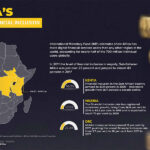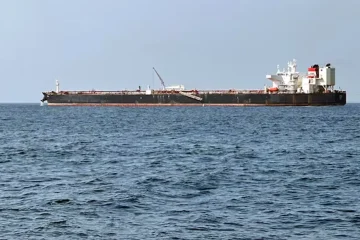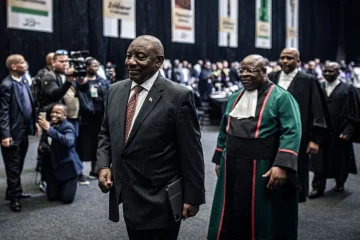A look at the scenarios that could shape investors’ financial strategies in the coming months.
As we navigate the intricate landscapes of global economics and domestic financial policies, it is important to reflect on the scenarios that could shape our financial strategies in the coming months.
In SA, the political climate is heating up with the upcoming general election. Recent polls suggest a significant shift, with the ruling African National Congress (ANC) potentially receiving less than 51% of the vote. Such an outcome could lead to the first coalition government, which would fundamentally alter our country’s political and economic trajectory.
Implications on economic policies
Should the ANC’s support fall to around 46%, the party would likely form a coalition government, maintaining a degree of control but sharing power. This coalition might not necessitate a significant shift from the ANC’s current policy direction.
However, the coalition would have to navigate shared ministerial positions and potentially conflicting priorities, which could introduce policy uncertainty.
The economic implications of such a political shift are profound. We currently do not anticipate drastic economic disruptions as policies are expected to maintain a degree of continuity. However, the political adjustments and their subsequent policy impacts could test investor confidence.
High international oil prices and the ongoing effects of El Niño are predicted to sustain inflation levels around 5.2% for 2024, with a gradual decline expected thereafter. The South African Reserve Bank might hold interest rates steady until the latter part of 2024, reflecting a cautious approach.
Broader economic context in SA
SA’s economic challenges are deeply intertwined with its socio-political dynamics. The nation continues to grapple with high unemployment rates, profound income disparities, and significant infrastructural deficits. These issues are compounded by systemic problems such as energy instability and logistical inefficiencies that impede domestic and international trade.
The economic growth forecast remains modest, with projections suggesting a slight improvement from 0.7% in 2024 to 1.4% in 2025.
These figures underscore the need for comprehensive policy reforms aimed at boosting economic productivity and inclusivity. Critical to these reforms will be the new government’s ability to implement effective measures, improve public-sector efficiency, and eventually stimulate a growth-orientated environment.
Read: Don’t count SA’s economy out just yet, StanChart says
Moreover, the global economic environment continues to impact SA. The nation’s heavy reliance on mining exports links its economic fortunes to global commodity markets, which are currently experiencing volatility owing to geopolitical tensions and changing demand dynamics.
Global influences
Globally, economic indicators signal varied trends that hold implications for emerging markets. Notably, the Bank of Japan’s decision to maintain low interest rates despite a weakening yen highlights a divergent approach compared to that of the US Federal Reserve, which appears poised to maintain or even increase interest rates in response to inflationary pressures.
This divergence affects global capital flows, influencing exchange rates and investment patterns that directly impact South African financial markets.
Persistently tighter US monetary policy could lead to a persistently stronger dollar, making dollar-denominated debt more expensive for emerging markets and potentially leading to capital outflows.
For SA, this scenario underscores the importance of robust economic diplomacy and the strategic management of foreign exchange reserves.
Furthermore, ongoing conflicts and negotiations in key regions are reshaping energy markets, supply chains, and international trade routes. The implications for SA are significant, given its import dependency on oil and sophisticated manufactured goods. These factors necessitate a vigilant approach to international economic developments and proactive adjustments to national economic strategies.
- Brett Silberg is a Risk, Wealth and Employee Benefits Expert.
He can be reached on 084 602 6298 (mobile), 087 802 5751 (call centre), [email protected], http://silbergbrokers.co.za/ or www.linkedin.com/












